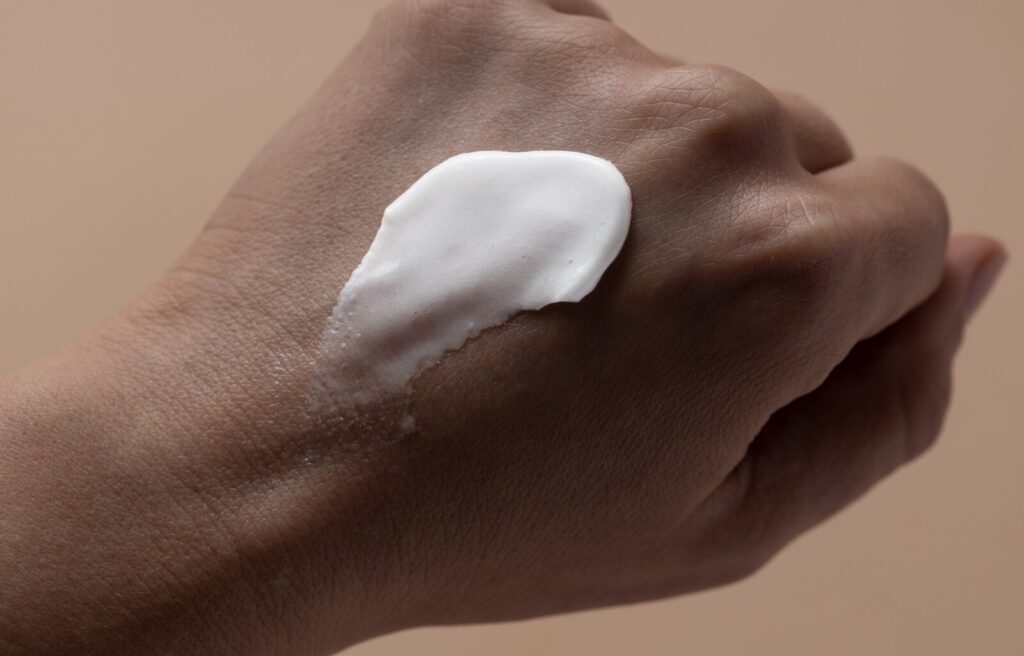“The dose makes the poison — all substances are poisons; there is none which is not a poison. The right dose differentiates a poison…“ Paracelsus
As members of the Rochester Athletic Club, we collectively recognize the importance of physical activity and fueling to support and promote health. Active participation is key to expanding physical range of motion (ROM) and the ability to live fully without limitations. Many of us intensely scrutinize our fueling choices and, in tandem, seek out exercises that produce optimal results. However, an overlooked area that is just as relevant and critical to health is what we put ON our skin.
What if everything you thought you knew was turned on its head and in fact the opposite is true? Everything, that is, in regard to the products you use daily: for women, that average is around 13 personal care products per day, containing 114 unique ingredients; for men it is around 11 products daily, with 105 unique ingredients1.
While living in Sweden, my personal trajectory around which health and beauty products I chose to use changed dramatically.
Case in point. We assume that ingredients in the body lotions, shampoos and conditioners, hair sprays, hair dyes, body scents, deodorants, etc. are vetted – that there is regulatory oversight, that we can trust that ingredients have been thoroughly tested and can do no harm. Well, unfortunately, that is not the case. Many ingredients used in personal care products (*and also packaged, processed foods!) in the US are banned in Europe.
Over 1300 chemical ingredients are not allowed in the EU, but are here, and often products are reformulated with the cheaper ingredients for sale in the US. “Of the more than 40,000 chemicals on the market in the US, the EPA has only banned six, including polychlorinated biphenyls (known as PCBs) which are linked to cancers, certain aerosol sprays blamed for the hole in the ozone layer, and dioxins, used as an ingredient in Agent Orange, which the US sprayed during the Vietnam war.”2
What does that mean for you? It brings to light that as consumers, we not only need to be proactive in how we fuel and how we move, but also be aware of what we put ON our bodies. The advice, “Don’t put on your skin what you wouldn’t put directly in your mouth” is solid. It highlights the fact that whatever is slathered on the skin, goes directly into our bloodstream.
Same goes for what is inhaled; synthetic chemicals and endocrine-disrupting ingredients do affect our well-being. The laundry list of symptoms is extensive and often dismissed. A lot of these chemicals can lead to problems like infertility, thyroid issues, all kinds of hormone disrupting effects and some are even carcinogenic. Research shows that it is usually not a single chemical that is potentially harmful but the sum of all products used over a lifespan can have serious health implications.3,4
One thing at a time. Once I had the epiphany that even my favorite brands and cosmetics were laden with toxic chemicals, the clean-out happened very quickly. I discovered that my more expensive, ‘better-quality’ brands (*Origins, The Body Shop, Kiehls – and more!)4, marketed as “natural” and “against animal testing”, were full of parabens5 and phthalates6, amongst other questionable ingredients.
One huge red flag is either FRAGRANCE or PARFUM. Know that hiding under either word can be over 4000 different chemicals, including phthalates, not listed because of ‘intellectual property’ or proprietary (read, ‘trade secret’) claims. The EPA uses terms like “neurotoxic,” “hazardous,” “linked to cancer,” “developmental toxin” and causing potential nervous system damage to describe these chemicals.1,7,8
What to do?
- Create awareness and vigilance by examining products used daily. Look at the ingredients. Research ingredients you can’t pronounce via the Environmental Working Group (EWG) website.9
- Rather than feeling overwhelmed, aim to switch-out one product at a time: personal care products, cleaning products, make-up. Yes, each category needs your attention.
- Get to know alternative products and companies that seek out quality, well-sourced ingredients: look for simple/recognizable ingredients in body products.
- Choose natural body care products that are unscented or have natural extracts or Essential Oils (EOs) added. These will not be the big commercial brands you grew up with (eg, made by Proctor & Gamble, Unilever, etc.).
- Explore products at Natural Grocers10, the People’s Food Co-op or Trader Joes. As with different food brands, when switching to natural/Organic/or non-mainstream brands, you’ll find new favorites, but it does take some experimentation and a willingness to try new items.
- Coconut oil is my go-to. It is fantastic as a skin moisturizer, hair conditioner, to use on cuts/or insect bites, and used in cooking. It is a multi-purpose product that has anti-bacterial, anti-fungal, anti-viral properties. Win-win. And yes, you can put it in your mouth and not worry about crazy added ingredients.
References:
- https://www.ewg.org/research/survey-finds-use-personal-care-products-2004-what-means-your-health
- https://www.theguardian.com/us-news/2019/may/22/chemicals-in-cosmetics-us-restricted-eu
- https://daveasprey.com/wp-content/uploads/2015/04/Transcript-Dr.-Trevor-Cates-Hacking-Dry-Skin-Internal-Health-The-Glowing-Skin-Summit-214.pdf
- https://www.kellybroganmd.com/books/a-mind-of-your-own (pp. 203-207).
- https://www.ewg.org/what-are-parabens
- https://www.ncbi.nlm.nih.gov/pmc/articles/PMC8157593/
- https://www.scientificamerican.com/article/toxic-perfumes-and-colognes/)
- https://www.ewg.org/news-insights/news/2023/07/what-fragrance
- https://www.ewg.org/skindeep/
- https://www.naturalgrocers.com/body-care-things-we-wont-carry-and-why




